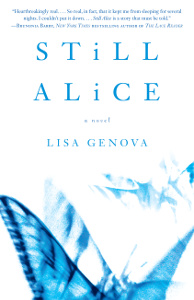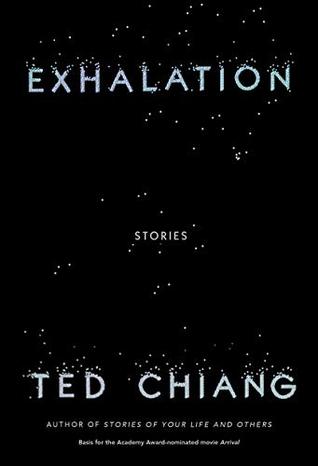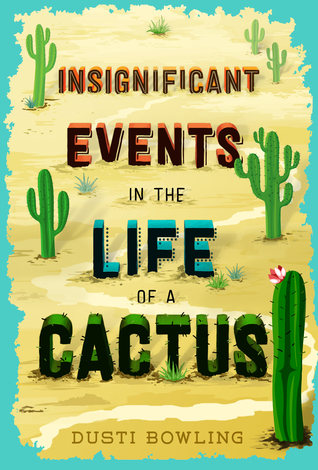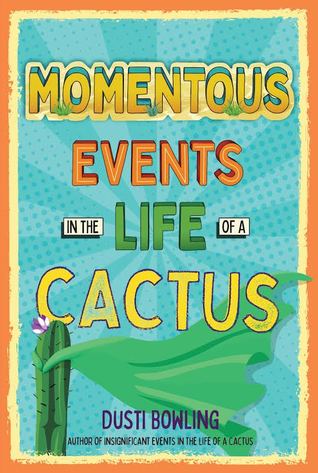I decided to dedicate two separate posts to books, this one is for fiction. I usually don’t read much fiction so last year I wouldn’t have had enough to write about for such a post (and what I did read I didn’t like so wouldn’t have wanted to write about it). I still don’t have that much, the hope is that you’ll add your own. Like last year, this is not about books that were published in 2020, I am just sharing what I read in 2020 and recommend.
My big reading innovation this year, by the way, was listening to audiobooks. It helped me read more since I can still follow along comfortably at 1.5x speed, often even 1.75x or 2x speed, which is definitely faster than I read. Importantly, it lets me multitask so I can make progress on a book while cooking or working on a jigsaw puzzle (one of my pandemic sanity preoccupations although some of you may recall that this wasn’t a pandemic novelty for me).

This book is definitely not new, it’s even been made into a movie already (I haven’t seen it), but I only came across it this year: Still Alice by Lisa Genova (2007). It’s a tough topic, early onset Alzheimer’s in an academic. It’s beautifully written and the best fictional depiction of academia I have seen (but again, to be fair, I don’t see that much fiction). It did make me rather paranoid, but following up on the book I also read about things one can do to help delay onset (FWIW, solving crossword puzzles is not one of them).

I no longer remember how I came across Convenience Store Woman by Sayaka Murata (2018), but I’m glad I did. Most reviews I read said nothing about the main character being on the autism spectrum, but it definitely reads like it. I enjoyed how the author portrayed her (the character’s) perspective on very much everyday things and interactions. I generally like the idea of not conforming to people’s expectations and that is precisely what the main character does.

Exhalation by Ted Chiang (2019) is a collection of stories, some of them short, others over 100 pages long. They are delightful stories. All of them make you think about the implications of technologies in our lives. The varied and colorful ways in which the author talks about humans and tech is both lovely and thought-provoking.


For younger readers and those young at heart, I recommend Insignificant Events in the Life of a Cactus (2017) and Momentous Events in the Life of a Cactus (2019) both by Dusti Bowling. They’re about a middle school (and then high school) girl who does not have arms (more the focus of the first book than the second although given bullying so characteristic of high school, it remains part of the story). She ends up becoming good friends with a boy who has Tourette syndrome and one who struggles with being teased about his weight. There are several other interesting characters and storylines.
What fiction did you enjoy this past year?
{ 14 comments }
MPAVictoria 12.31.20 at 3:39 pm
Those are some lovely sounding books Eszter. Thank you for sharing them and giving us a space to share our own picks for the year.
My current literary obsession are the Guido Brunetti Detective novels by Donna Leon. They follow the adventures of a senior detective in the Italian city of Venice and are just absolutely wonderful reading. The mystery is always intriguing but the picture Leon paints of life in Venice and of Brunetti’s family is even better. They read almost like a travelogue which made them perfect for a year spent mostly at home alone. If you like detective fiction I would highly recommend giving them a try. There are like 20 so it is worth reading them in order.
The other recommendation I have is pretty much any book by Alexander McCall Smith especially from either his 1 Ladies’ Detective Agency series or his Detective Varg series. Both take the regular mystery novel tropes and twist them into something much lighter and more life affirming. I can’t say enough good things about either series. They provided some much needed comfort this year.
Eszter Hargittai 12.31.20 at 5:18 pm
Oh goodie, thanks! My library seems to have a bunch of this in audiobook format so that’ll be easy. (Not the first one in the series, even the book version of that is on hold, so I’ll try the second.)
Doug K 12.31.20 at 7:20 pm
all my reading this year has been escapist..
Goodreads (link from my name) tells me I read 141 books this year, 51 103 pages. That’s only the books from Amazon, as I’m too lazy to enter paper book details into Goodreads. It also doesn’t count all the Project Gutenberg books read on the Kindle – looking at my download files seems to be another 49 or so. So, somewhere north of 200 altogether including dead tree formats I guess. This is a bit higher than a usual year.
Standouts:
Drive Your Plow over the Bones of the Dead, Olga Tokarczuk
Title is from Blake, it describes the act of farming anywhere in the world. A sort of murder mystery with animal rights activism, didn’t see any part of it coming. Comical and tragical, just like life.
The Labyrinth of the Spirits, Carlos Ruiz Zafon. Grimdark story from the Spain of Franco. Normally I would not have been able to read this, having grown up in a police state and watched so many countries recently sliding that way including my own adoptive one: but this year it was a sort of catharsis maybe.
Upton Sinclair, the Lanny Budd novels. I knew him from The Jungle, an expose of the US meatpacking industry written in 1906 that could have been written today – illegal immigrants worked half to death in brutal unsanitary conditions. These novels cover the battle between socialists, communists, and capitalism in America and Europe. They are still like the expose, profoundly relevant.
“It is difficult to get a man to understand something, when his salary depends upon his not understanding it.”
Second the Alexander McCall Smith, there is also a series set in Edinburgh where I’ve always wanted to live, that is kind and hopeful like all his books.
Plarry 12.31.20 at 9:49 pm
Most of my non-technical reading this year has also been escapist genre fiction. Two of the highlights were: This Is How You Lose the Time War by El-Mohtar & Gladstone, a brilliantly written epistolary novella that swept up a bunch of well-deserved awards (Hugo, Nebula, Bradbury, etc.); The Invisible Life of Addie LaRue by V. E. Schwab, a beautiful, Faustian coming-of-age story told over 300 years.
Dogen 12.31.20 at 10:03 pm
+1 on Drive Your Plow Over The Bones Of The Dead
It’s an amazing book. You won’t regret a minute spent with it.
Also: Deacon King Kong by James McBride. Original, funny, very hard to describe.
Network Effect by Martha Wells. It’s book 5 in a string of novellas called the Murderbot Diaries that start with All Systems Red. Murderbot is the 1st person narrator of them all and his voice is distinctive and (to me) hilarious. I can’t recommend these highly enough.
The Art of Hearing Heartbeats was sweet and enjoyable. American Spy was a great read too.
Just finished Seven of Infinities by Aliette de Bodard and recommend it.
novakant 01.01.21 at 12:24 am
I read 3 novels by Dag Solstad this year:
Shyness and Dignity
Novel 11 Book 18
Professor Andersen’s Night
He’s been described as an existentialist writer and that seems pretty accurate, he also writes incredibly well and has a wry sense of humour. Staring into the abyss with a smile on your face did it for me this year.
Then, I read the Buddenbrooks again after some 30 years and Mann’s writing captivated me once again – the way he contructs chapters you could turn it straight into a screenplay and his view of society is both cooly distanced and full of understanding for the frailty of humans.
The last book was Annie Ernaux’ The Years which is a great book of autofiction.
nnyhav 01.01.21 at 2:54 am
Of what came out this year and last, what stood out:
Mercè Rodoreda, Garden by the Sea (Maruxa Relaño & Martha Tennent) [Open Letter]: more evidence of her place at the top of Catalan lit
Aleksandra Lun, The Palimpsests (Elizabeth Bryer) [Godine/Verba Mundi]: exophonic fun!
José Eduardo Agualusa, The Society of Reluctant Dreamers (Daniel Hahn) [archipelago]: the stuff that Angola is made of
Tomás González, Difficult Light (Andrea Rosenberg) [archipelago]: sensitively drawn Columbian artist in NYC losing a son to unremitting pain, looking back in the fading light
Vigdis Hjorth, Will and Testament (Charlotte Barslund) [Verso]: dysfunction radiating thru family ties that bind
Dave Maier 01.01.21 at 5:05 am
Thank you, this is great. I love that Ted Chiang book! I think I even recommended it here last year. I can’t remember everything I read this year but here are a few.
Dorothy Baker – Cassandra at the Wedding
Rachel Cusk – Outline
William Gibson – The Peripheral [another take on time travel if you want more after Exhalation]
the first two books in Ben Aaronovitch’s Rivers of London series, which I’m pretty sure I learned about here — thank you whoever (Henry maybe?)
Jenny Erpenbeck – The End of Days
N.K. Jemisin – the Inheritance Trilogy (I did not like her most recent, which I didn’t finish)
Looking forward to Perhaps the Stars, the fourth volume in Ada Palmer’s astounding Terra Ignota series.
Chris Bertram 01.01.21 at 4:50 pm
This year I read 35 novels, of which my top 10 were
Anna Burns, Milkman
Richard Powers, The Overstory
Richard Powers, The Gold Bug Variations
Dickens, David Copperfield
Douglas Stuart, Shuggie Bain
Marilynne Robinson, Jack
David Lodge, Small World
Bernadine Evaristo, Girl, Woman, Other
Toni Morrison, Paradise
Camus, La Peste
The books I liked least were Ben Lerner, Leaving the Atocha Station and Richard Powers, Prisoner’s Dilemma (so Powers makes the best and worst list). I greatly enjoyed Barbara Kingsolver’s Flight Behavior, but I don’t think it has the literary merit of the top 10 (and ditto David Mitchell, Utopia Avenue, which was also great fun).
TheSophist 01.01.21 at 11:05 pm
Piranesi is every bit as good as you might have heard. I got a copy for Christmas and, after reading the first half-dozen pages, basically retreated to my bedroom and spent the rest of the day reading it. The last time I remember doing that with a Christmas book was with Dune, when I was 14.
novakant 01.01.21 at 11:38 pm
“Small World” is hilarious and touching, I read it when I was deep into Literary Theory and it provided some perspective – I also read the other novels in the trilogy (“Changing Places” / “Nice Work”) back then and thought they were great as well.
dresdengiraffe 01.02.21 at 3:26 am
My fiction achievement of the year was Lucy Ellmann’s ‘Ducks, Newburyport’ which was a struggle until I realised it needed longer reading sessions. After that it was a delight. (Lockdown helped…) I also loved ‘Girl, Woman, Other’ (Evaristo), ‘The Old Drift’ (Serpell), ‘The Man Who Saw Everything (Levy) and Excellent Women (Pym).
Enjoyable binges on Mick Herron’s ‘Jackson Lamb’ series, Agatha Christie and Anne Leckie’s ‘Ancillary’ trilogy.
Am new to audiobooks but Max Porter’s ‘Lanny’ as read by an ensemble cast was great.
LFC 01.02.21 at 11:54 pm
Michael Frank’s What Is Missing (Farrar, Straus and Giroux, 2019), which I read last year, is a superbly crafted piece of fiction [disclosure: I am personally acquainted with the author].
The plot centers on a woman in her late thirties who works as a translator, whose mother is Italian and whose father was American, her late-arising desire to have a child, and what she goes through in her efforts to conceive. She is attracted both to a divorced, intellectual, middle-aged doctor who specializes in treating infertility and to the doctor’s charismatic, sensitive teenage son, who is a senior in a private high school in Manhattan. A romantic triangle ensues, though not the paradigmatic kind that involves two sexual liaisons running simultaneously. Secrets abound, and the narrative is, in part, about the psychology of concealment. Set in New York and Italy, with spot-on dialogue, subtle portraits of character, and memorable descriptions of visual art, this is a classically well-constructed and highly accomplished novel.
John Quiggin 01.04.21 at 12:56 am
“My big reading innovation this year, by the way, was listening to audiobooks. It helped me read more since I can still follow along comfortably at 1.5x speed, often even 1.75x or 2x speed, which is definitely faster than I read. Importantly, it lets me multitask so I can make progress on a book while cooking or working on a jigsaw puzzle”
That’s interesting. My experience is so directly opposite that I never listen to or watch anything where a text or transcript is available. Even 1.5 speed is only about 200 wpm, and I can read comfortably at 500 wpm, faster if I skim. And I can’t or don’t multitask (much) while listening, solving a puzzle would be too hard. I can listen while cooking, but I rarely get around to it.
Comments on this entry are closed.